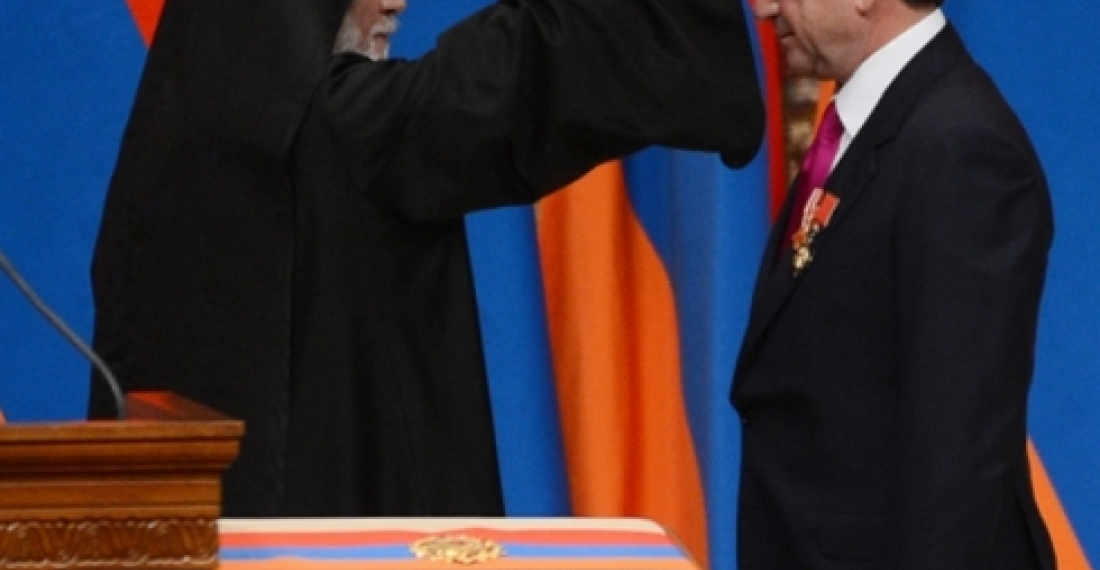Serzh Sargsyan was yesterday sworn in for his second term as President of Armenia at a ceremony attended by mopre than two thousand guests held at the Karen Demirjian Sports and Concert Complex, as police clashed with opposition supporters outside the Presidential Office in the centre of Yerevan.
In a short speech the President spke of the prioities for the coming years and highlighted the importance of finding a solution to the Karabakh conflict. He said
"In the area of foreign policy, a peaceful settlement to the Nagorno Karabakh issue is and will remain our priority for as long as necessary to arrive at a final solution. At the same time, we will consistently work to enhance the level of our security. We do not underestimate any international dimension here; we are grateful to all those who contribute to maintaining regional stability, but we must rely on our own power, first and foremost. In the event of possible adverse developments, the importance of deterring the adversary and preserving peace are beyond discussion."
Without mentioning Azerbaijan by name the President sniped at the Azerbaijani leadership and its rhetoric, stating:
"We have never terrorized our own people with war. Moreover, we have never used this issue as an excuse to gag the opposition. However, we deemed it our duty to earnestly and realistically state that such a threat does exist.
Irresponsible people and those who have never experienced war, may turn the possibility of war into a subject for cynical and sordid profiteering. I am not one of them: I know what it takes to lose a friend or experience the bliss of victory. I fretted over every soldier's life, every inch of the native land. Therefore, through the vote of confidence vested in me by the people of Armenia, I declare: We do not want war but, at the same time, we are ready to withstand any challenge. I reiterate this for slow learners: any challenge."
Referring to Azerbaijani policy of isolating Armenia politically and economically the President said,
"We offered our neighbours dignified peace, anchored to universal human values. But the experience of recent years has demonstrated that they are not ready to accept the offer. The tougher, in their own opinion, conditions they create for us, the stronger we become. And this will be becoming increasingly more salient."
For more information on current domestic Armenian politicsm, including the controversy following the 18 February Presidential elections please visit our sister website www.electionswatch.org.
source: commonspace.eu
Photo: President Serzh Sargsyan of Armenia being blessed by the Catholicos of All Armenians Garagin II following his swearing in as President for the second term on 9 April 2013. (Picture courtesy of the Press office of the Armenian President.)






